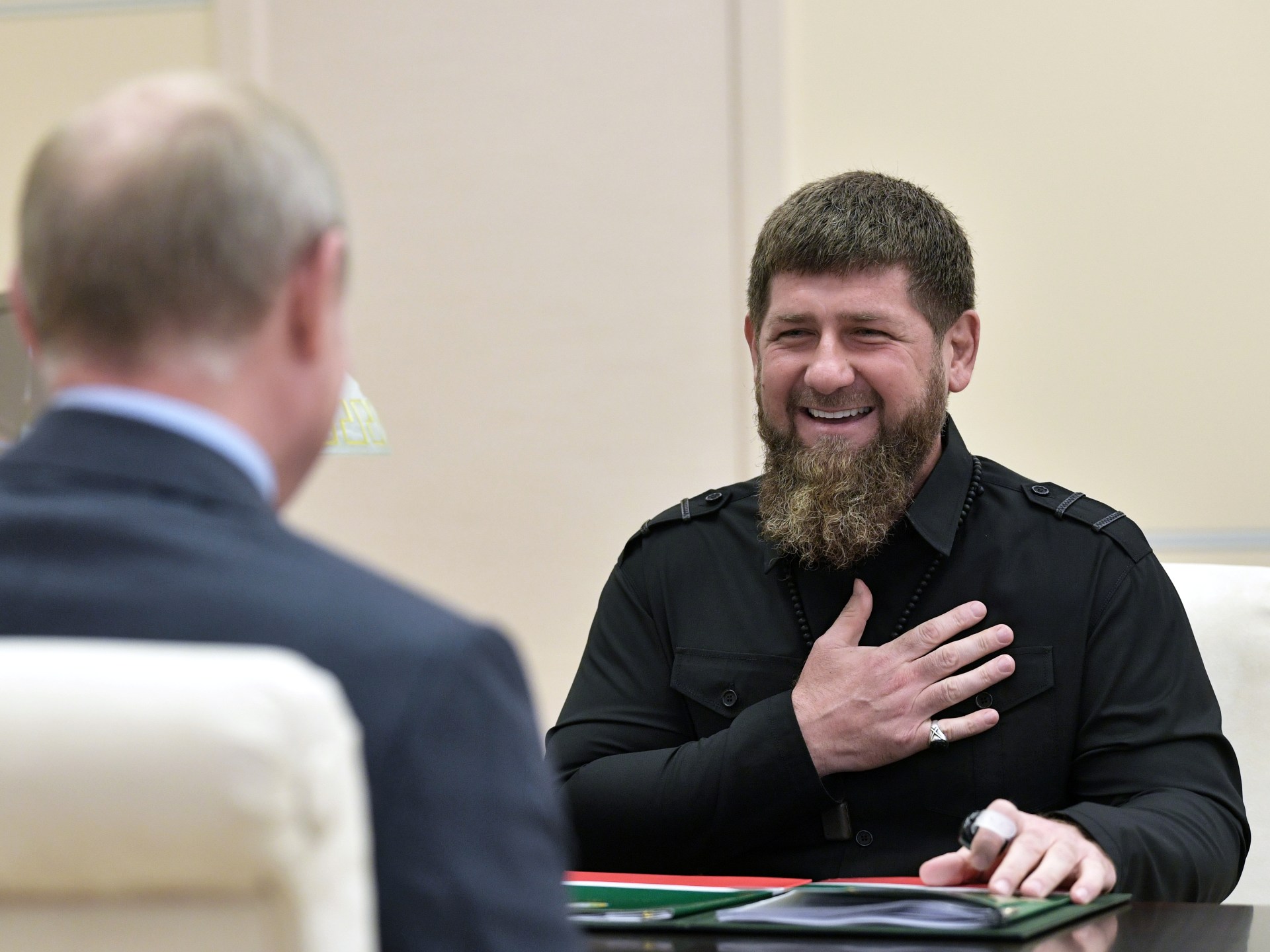MOSCOW -
Chechen President Ramzan Kadyrov's announcement of his intention to send his sons to participate in the Russian attack on Ukraine sheds new light on one of the most controversial figures in the Russian political scene, especially in the current war conditions.
Kadyrov's name stuck to the most severe statements about dealing with Kyiv, and he did not hesitate to invite the Kremlin to consider using a low-yield nuclear weapon against it.
Not even the generals and soldiers who were assigned to defend the city of Mylin, which had recently fallen to the Ukrainian forces, were spared from his stinging statements.
Prior to that, Rafidi described the mobilization and participation in the war as "cowards."
Although the State Duma responded to Kadyrov that it was strictly forbidden to recruit children into the army, he replied that "young age should not interfere with the training of defenders of the Motherland."
Kadyrov recently announced sending his sons to participate in the Russian attack on Ukraine (Reuters)
Beginnings
The precursors to Kadyrov's rise to power date back to the end of the active phase of the Second Chechen War (2000), when the Russian authorities transferred control of the republic to the shoulders of local elites, in exchange for abandoning the slogan of independence.
This led to the formation of a unique position of the Chechen Republic within the Russian Federation;
The central government controls the republic to a limited extent.
Officially, institutions and departments at the federal level operate exclusively in accordance with the laws of the Russian Federation.
In practice, they obey Kadyrov's directives and traditional Chechen laws.
Ramzan Kadyrov's ascension to the political arena at the federal level came quickly, and even somewhat unexpectedly.
The reasons for his success in assuming the presidency of Chechnya in 2007 - at the age of 30 - are due to a number of factors:
He managed to restore order in the republic of one and a half million citizens, and get rid of all his rivals, including those who enjoyed the support of some politicians and security forces in Moscow.
He quickly created his own political system (a personal header of power), but Chechen opponents say he sometimes resorted to harsh methods, accompanied by mass persecution using torture and repression.
loyalty to Putin
Kadyrov is known for his absolute loyalty to Russian President Vladimir Yutin, and has repeatedly expressed his conviction that Putin should remain Russia's president forever.
For example, in October 2014, he organized a celebration of the Russian leader's birthday in the capital Grozny (according to the then Chechen Ministry of Internal Affairs) about 100,000 participants.
In this context, political writer Alexei Malashenko notes that at about the same time as these celebrations took place, 54% of Russian citizens were in favor of no alternative to Putin as president, which, according to Malashenko, indicates that Kadyrov thinks and acts entirely in line with official discourse. Russian.
Hence, many Russian observers believe that Kadyrov's strength rests - to a large extent - on his personal relationship with Putin, which developed on its own after the murder of his father Akhmad Kadyrov in 2004 in a bombing at the Dinamo stadium in Grozny.
Moreover, in the eyes of the Kremlin, Kadyrov appears to be the most successful of the leaders of the North Caucasus republics. Some Russian politicians even regret that Kadyrov's experience in Chechnya, from their point of view, did not extend to the entire North Caucasus, and to some extent to the rest of Russia.
Autonomy in Chechnya depends on local armed forces numbering between 10 and 30 thousand people, called "Kadyrovtsy" (Kadyrovians), and they are officially subordinate to the Russian Foreign Ministry and the National Guard.
According to the Carnegie Moscow Center (he is considered a foreign agent by Russian law), these forces constitute Kadyrov's private army, which is commanded by his comrades, and almost all the military and security forces are under the control of the Chechen Republic authorities, and only the local FSB remains independent.
Kadyrov formed a military arm of Moscow in its war against separatists in the North Caucasus (Reuters)
Moscow's grip in the Caucasus
For Moscow, Kadyrov's leadership in the Chechen Republic constituted an important element in Russia's war against armed groups in the North Caucasus, and Chechen fighters played a prominent role in supporting Russian forces during the so-called purges of separatists and fundamentalists, which were represented by the infiltration or killing of Chechen fighters, isolate them from the cities.
According to Russian sources, this led to the expulsion of between 4,000 and 5,000 fighters from those areas to Iraq and Syria, where a large number of them joined the Islamic State, including about 1,500 Chechens.
Middle Eastern role
Kadyrov also plays a special role in Russian politics in North Africa and the Middle East.
Over the past years, he and his companions - as representatives of President Putin and the Russian Federation - have held dozens of meetings with leaders and senior officials in Saudi Arabia, the United Arab Emirates, Jordan, Bahrain, Qatar, Libya and others.
In addition, the Kadyrov Charitable Foundation maintains relations with the fairly large Chechen community in Turkey, Syria and Jordan;
Thus, Kadyrov's influence spread within these communities in the Middle East, which strengthened the position of the Chechen leader in the Russian political arena.
Although Russian observers believe that Kadyrov is the most important guarantor of the current situation in Chechnya, in the long run they do not rule out, in the event of the departure of the Russian leader, a review of the current model of relations between the central government and Grozny.
This could, among other things, lead to Chechnya's tendency once again to gain independence and expand its borders at the expense of neighboring republics, as it did after the collapse of the Soviet Union.
According to them, separatist tendencies in the republic are still strong.

